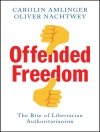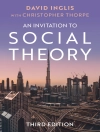In this important volume Habermas outlines the views which form the
basis of his critical theory of modern societies. The volume
comprises five interlocking essays, which together define the
contours of his theory of communication and of his substantive
account of social change.
’What is Universal Pragmatics?’ is the best available statement of
Habermas’s programme for a theoryof communication based on the
analysis of speech acts. In the following two essays Habermas draws
on the work of Kohlberg and others to develop a distinctive account
of moral consciousness and normative structures. ’Toward a
Reconstruction of historical Materialsim’ takes these issues
further, offering a wide-ranging reconstruction of Marx’s
historical materialsim understood as a theory of social evolution.
The final essay focuses on the question of legitimacy and on the
legitimation problems faced by modern states.
This book is essential reading for anyone concerned with the key
questions of social and political theory today.
Innehållsförteckning
Translator’s Introduction.
1. What is Universal Pragmatics?.
2. Moral Development and Ego Identity.
3. Historical Materialsim and the Development of Normative
Structures.
4. Towards a Reconstruction of Historical Materialism.
5. Legitimation Problems in the Modern State.
Notes.
Index.
Om författaren
Jürgen Habermas is a German philosopher and sociologist in the tradition of critical theory and pragmatism. He is perhaps best known for his theories on communicative rationality and the public sphere. In 2014, Prospect readers chose Habermas as one of their favourites among the ’world’s leading thinkers’.












